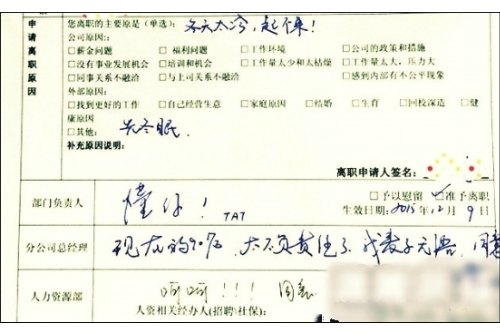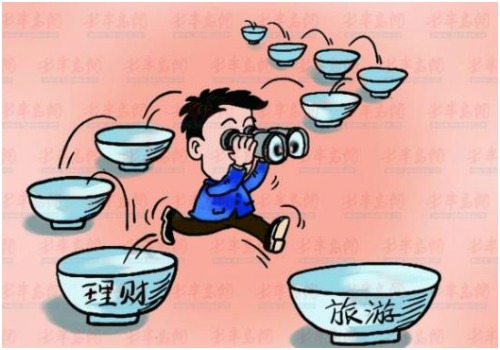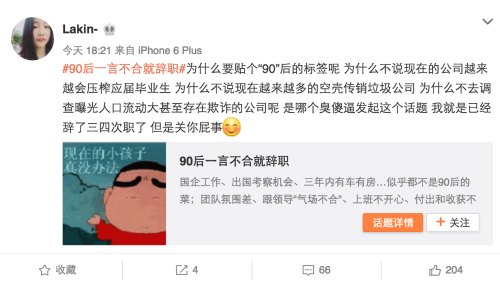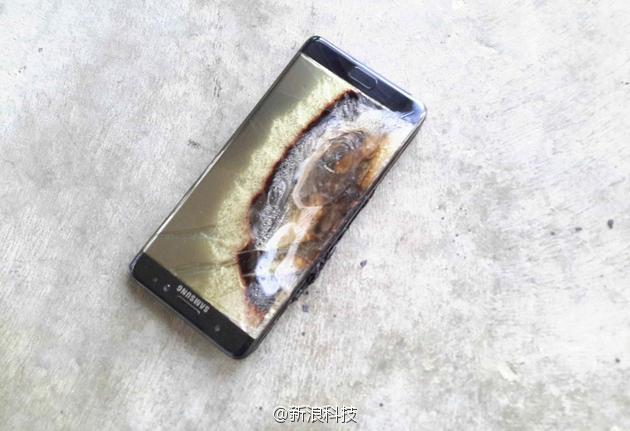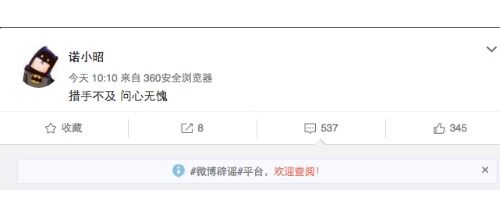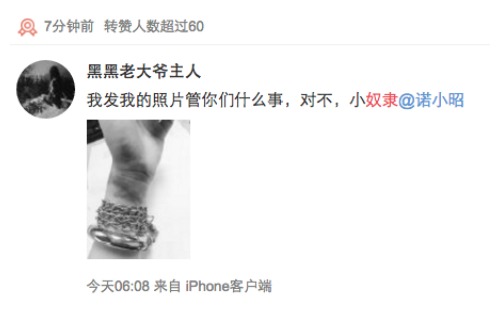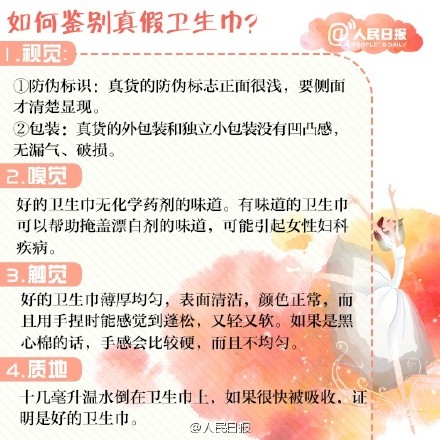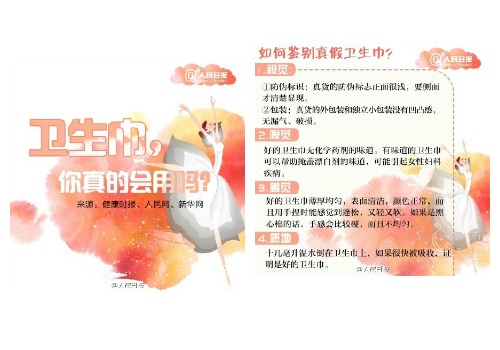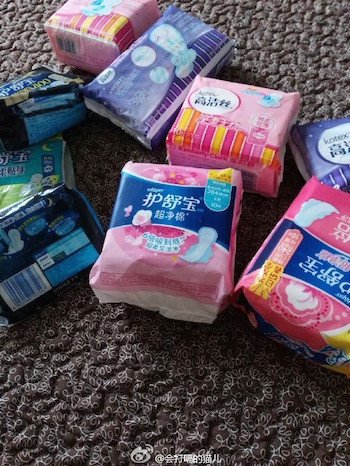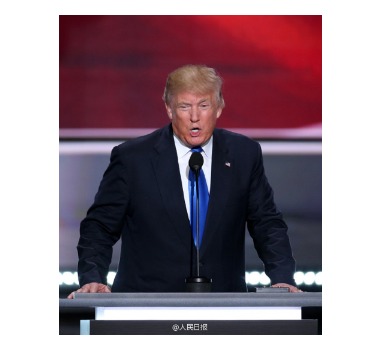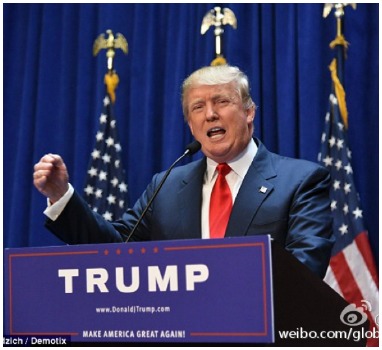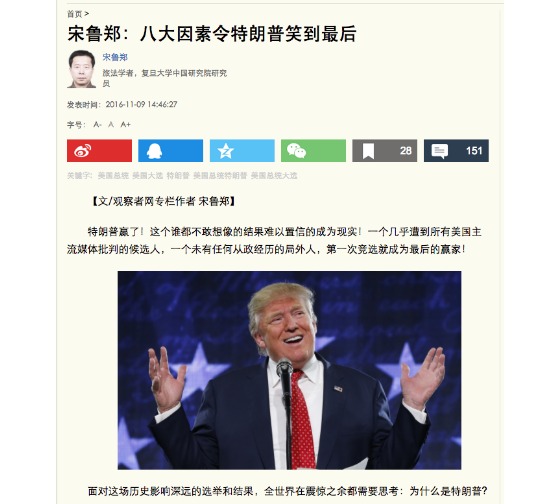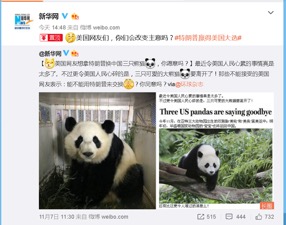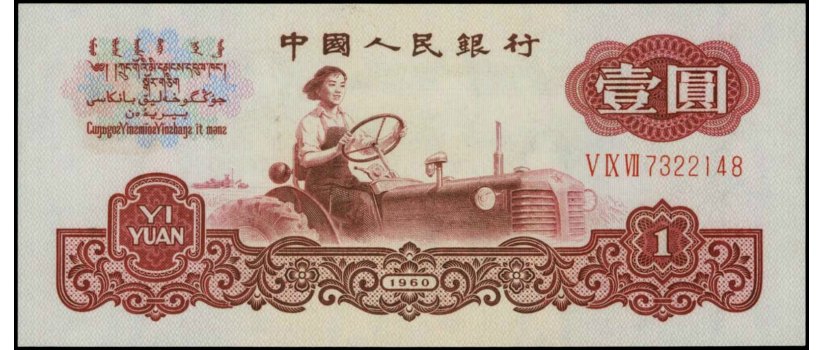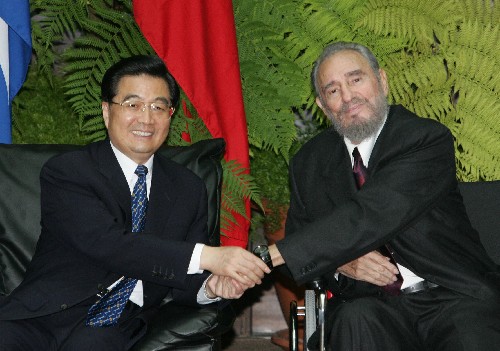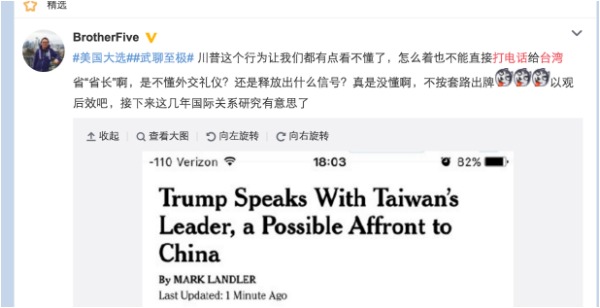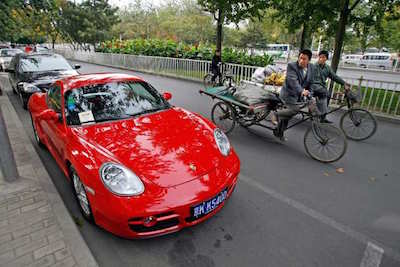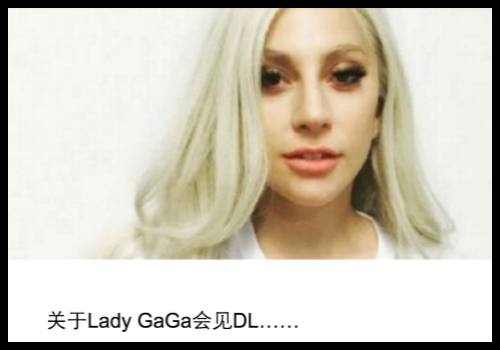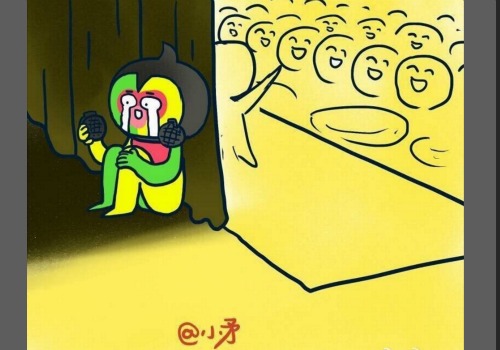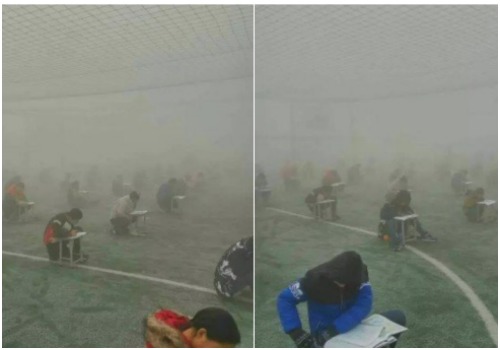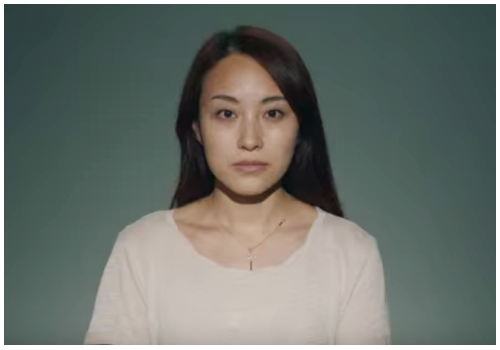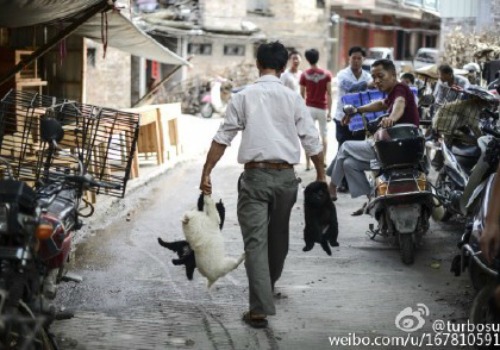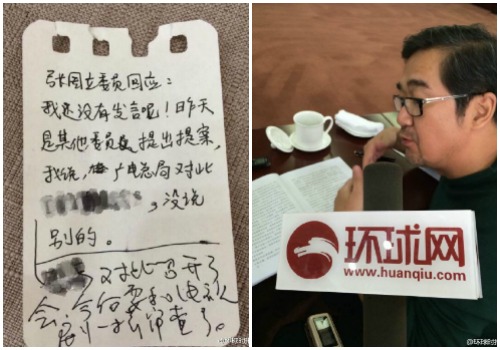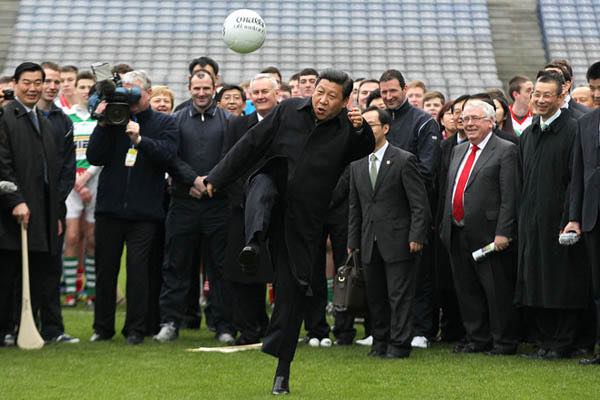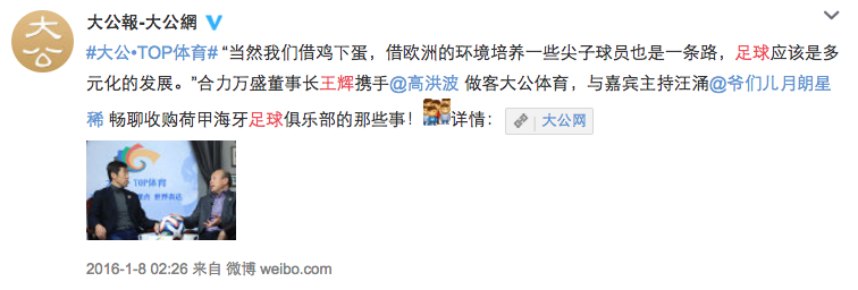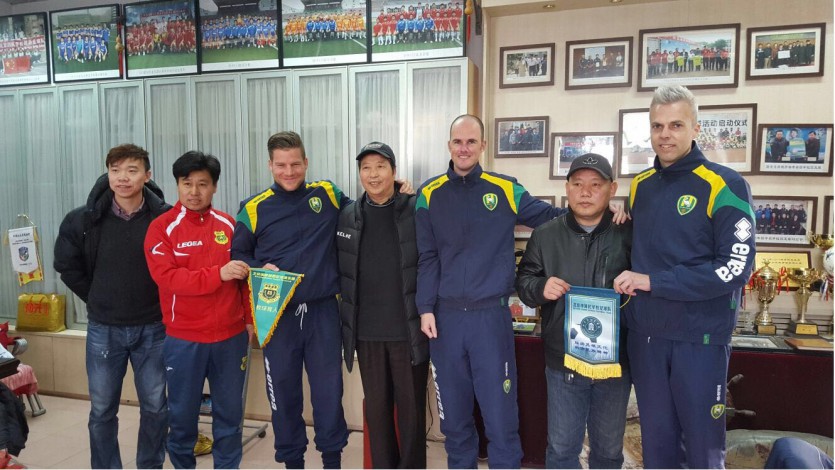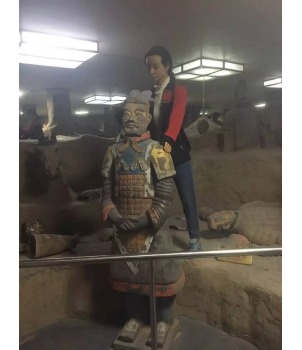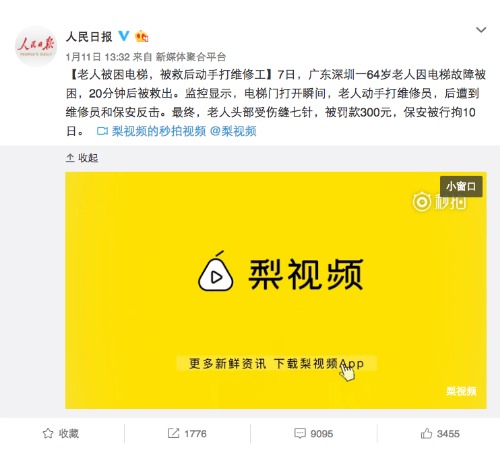What were the most discussed topics on Weibo of 2016? What’s on Weibo gives an overview of top stories on Chinese social media from A to Z: a look back at Weibo’s biggest trends of 2016.
As we are getting ready for a new year, What’s on Weibo reflects on the most popular trending stories on Chinese social media in 2016. It was a year where many things happened, from political controversies to online scandals and social hypes.
Sometimes the most trivial things got big, while the biggest things remained trivial. Time to list the China trending stories and digital trends of 2016 from A to Z.
———
#A is for Alipay,..the app for raunchy transactions
![alipay]()
The A is for Alipay in this alphabet of 2016; not just because this Chinese ‘equivalent to Paypal’ is still the world’s leading third party payment platform, but also because the app made headlines in November when it launched a new group chat feature that soon turned into a ‘soft porn’ place.
The new social feature ‘Circles’ (生活圈) made it possible for users of a certain sex (female) to post, while only allowing other (male) users above a certain credit score to comment/interact. It triggered hundreds of women to post sexy pictures to tempt men or other users with a high credit score to spend some of their digital money. The groups were soon closed and Alipay CEO Peng Lei apologized, calling the incident “the most difficult” period of her Alipay career.
#B is for Baidu,..promoting false medical information
![baidu]()
Another 2016 online scandal was exposed in May when the death of a 21-year-old cancer patient triggered heated discussions about Baidu’s paid search results. Through an online search on China’s biggest search engine Baidu, a young man named Wei Zexi found a promising treatment for with he spent 200,000 RMB (31,000US$). It later turned out to be a highly contested one, and the man soon died. Thousands of netizens criticized Baidu for offering a platform to shady health care providers.
The death of Wei Zexi did not only expose the spread of false medical information by Baidu, it also revealed a huge profit-driven healthcare market, in which Baidu and the fraudulent Putian Medical Group were running the show. Although the uproar led to a temporary shutdown of these ads, the same advertisements reappeared on the search engine in November.
#C is for Castro,..the “old friend of China”
![]()
Shortly after news of his death came out, Cuban leader Fidel Castro became the number one trending topic on Weibo in November. Many Weibo users called Castro an “old friend of China”, expressing their condolences through thousands of digital candles. Under the leadership of Castro, China-Cuba relations became like those between “good comrades, good friends, and brothers”, as former president Hu Jintao described them. The Weibo topic on #卡斯特罗去世# was viewed over 99 million times.
#D is for Disneyland,..the grand opening in Shanghai
![disney]()
It was the most anticipated opening of the year. Disneyland Shanghai opened its doors on June 6 of 2016 to let the masses of people in who had been able to get their hands on the most wanted tickets of the year. Although Chinese netizens had been raving about the opening of the ‘happiest place on earth’ for months, the enthusiasm soon made place for complaints after the opening.
Many said the Disney trains in Shanghai were ugly and not nearly as beautiful as those in Hong Kong, the prices of snacks and drinks were deemed way too high, and many were troubled by the uncivilized behaviour of some visitors to the park.
#E is for Eleme,..China’s successful home-delivery app
![elemewhatsonweibo]()
The E in this alphabet perhaps not just stands for Eleme (饿了么) but the overall success of E-commerce in China in 2016. Home-grown delivery apps like Eleme, Baidu Takeout and Meituan were ubiquitous all over the first-tier cities of China this year. Delivery apps Eleme and Meituan became the focus of scrutiny when Chinese media revealed they were involved in illegal business by selling food from unlicensed restaurants.
With a heightened crackdown on street food, many unlicensed vendors chose to sell their food door-to-door via apps like Eleme, making them relatively ‘invisible’ to authorities. It has led to authorities keeping a closer eye on these delivery platforms.
#F is for Forbes Billionaires List,..China’s billionaires
![Chinas economic growth is widening the gaps between the rich and the poor]()
The release of the Forbes Billionaires List got Weibo talking about money and the world’s youngest billionaires this year. Although the very youngest multi-millionaire is not Chinese – but a 19-year-old Norwegian – the Forbes list revealed that China also has its fair share of young billionaires, with entrepreneur Wang Han becoming one of the world’s youngest billionaires at the age of 28. Check out our list on China’s youngest billionaires.
#G is for Gaga,..for meeting with the Dalai Lama
![aboutladygaga]()
In the summer of 2016, Lady Gaga lost a lot of her Chinese fans after she met up with the Dalai Lama during a US conference in Indiana. After learning of Gaga’s support for the Dalai Lama, many netizens said that “Lady Gaga has officially left the Chinese market.”
![gobifeat]()
Honourable mention: The #G for Gobi, the desert dog. The stray dog captured everyone’s heart after joining runner Dion Leonard on a 155-mile marathon across China. Netizens all rooted for Gobi after the dog got lost while in quarantine before joining Leonard to his home in Scotland, but after an amazing nine-day search, the little dog was found in Urumqi, and she is now on her way for a new life with her self-chosen owner Leonard in Scotland.
#H is for Hangzhou,..the heart of the G20
![hangzhoucrowded]()
The whole world was looking at Hangzhou in September of this year as world leaders convened in the ancient Chinese city for the annual G20 summit. It marked China’s first time as host of the international forum – an important moment for China to once again emphasize its important role in the international community today.
But the G20 was also an opportunity for the city of Hangzhou to promote itself as a tourist destination. These efforts paid off so well that in the days following the G20 summit, the city was so packed that people could barely move. It also led to trash being left behind all over the city by visitors, with street cleaners removing as much as 14 tons of garbage within one day.
#I is for iPhone6 Legs,..another skinny trend
![whatsonweiboa4iphone6]()
This was the year of different challenges taking over social media. There was the One Finger Selfie, the A4 waist challenge, and the much-discussed iPhone6 challenge.
Thousands of female netizens posted pictures on social media showing off how their smartphones could cover their skinny legs. Although many people later ridiculed the trend, there were also worries that these kinds of hypes promote unhealthy beauty standards. The majority of Weibo users, however, seemed to accept that an iPhone could never cover both their legs. Perhaps an iPad could.
#J is for Johan Cruyff,..the Dutch soccer hero
![cruyff]()
As What’s on Weibo is a blog that is both run from Amsterdam and Beijing, this topic especially touched our hearts this year. Dutch soccer hero Johan Cruyff passed away at the young age of 68 due to cancer, and became Weibo’s number one trending topic.
Within hours after news of the soccer legend’s death came out, thousands of Weibo users responded by posting candles and crying emoticons for what some called the “emperor of soccer” and “the world’s most legendary number 14.” Cruyff’s Chinese fans expressed their grief and their respect for his career: “The soccer world has lost its godfather, but your philosophy remains. Don’t forget to wear your soccer shoes in heaven. I salute you,” one fan said.
#K is for Kang Kang,..the missing CCTV mascotte
![whereiskangkang]()
For the Year of the Monkey, CCTV launched its new official mascot of the Spring Festival Gala: Kang Kang the monkey. But when controversy arose over web users deeming the mascotte ‘ugly’ and ‘stupid’, Kang Kang suddenly was nowhere to be seen anymore.
It led to the burning question on Weibo: whatever happened Kang Kang the Monkey? Weibo netizens discussed the various reasons why Kang Kang did not come on the show, with some wondering if he left when he saw the show’s rehearsal and others suggesting they should file a missing’s person report. There were multiple netizens who thought Kang Kang might have carried ‘dangerous goods’ and did not pass the CCTV’s strict security checks. Kang Kang, unfortunately, was not be seen again.
#L is for Lei Yang,..who died due to police brutality
The death of Beijing resident Lei Yang (雷洋) was already called one of the biggest controversies of the year in May of 2016. When the 29-year-old environmentalist Lei Yang died shortly after his arrest at an alleged brothel, his story sparked national outrage over police brutality. “We could all be the next Lei Yang” was one of the phrases that soon made its rounds on Chinese social media. When Lei’s wife stepped forward demanding answers from Beijing authorities on the circumstances surrounding her husband’s death, she received massive support from China’s Weibo users.
According to further investigation by the Beijing prosecutor’s office, Lei Yang was found to have died due to choking. VOA recently reported that five officers involved in the case are expected to be charged with dereliction of duty in this case.
#M is for My Little Princess,..the hit TV drama
![mylittleprincess]()
My Little Princess, a Chinese TV drama revolving around the trials and tribulations of Chinese rich kids attending college, is just one of the many Chinese TV dramas that became big trending topics on Weibo this year.
Other hit dramas were shows like The Interpreters, The Imperial Doctress, and countless others. The sucess of telenovelas like My Little Princess shows that Chinese audiencies just cannot get enough of TV drama – enjoying them together with a far broader audience outside of the People’s Republic.
#N is for the Noodle Gang,..Shanghai’s noodle maffia
A Shanghainese ‘Noodle War’ attracted the attention of Chinese netizens this year, as one noodle restaurant named Alilan openly shared its battle with a local Chinese Hui muslim community, that alleged the owner violated their code that there should be no other beef noodles restaurant within 400 meters of a Hui muslim restaurant.
As the ‘noodle community’ attempted to boycott the restaurant by standing in front of Alilan and blocking visitors from entering, Weibo netizens stepped up and showed their support by coming to dine at Alilan and resisting the boycott in great numbers. Weibo saved the restaurant, which is still running a successful business today. They thanked their fans for their help on their Weibo page earlier this month.
#O is for the Olympics,..that made Fu Yuanhui famous
![swimmers2]()
The topics related to the Olympics might just have been the biggest topics of the year on Chinese social media. Whether it was about the helmets designed for the cycling team, the insulting comments about Chinese athletes made by a Canadian TV commentator, or the success of made-in-China products in Rio, the Olympics were the trending topic of the summer of 2016.
But only one Chinese athlete was the absolute winner of all Olympic-related topics. Swimmer Fu Yuanhui stole everyone’s hearts with her down-to-earth attitude and almost childlike facial expressions and talks about how she won at the Olympics with her ‘mystical powers.’ She also broke a sporting taboo by openly speaking about her period. With now over 8 million followers on her account, Fu Yuanhui has become a popular Weibo celebrity.
#P is for Papi Jiang,..the online celebrity of 2016
![]()
Papi Jiang rose to fame in 2016 and went from a lonely vlogger to one of China’s most beloved online celebrities – seemingly overnight. The Weibo superstar was the ‘new kid on the block’ in March of 2016 with her witty online videos in which she commented on anything from family interactions to dating etiquette.
In April 2016, the power of Weibo’s celebrity economy became clear when an ad auction showed that companies were willing to pay up to 22 million RMB (3,4 million US$) to get Papi Jiang connected to their brand. It showed that 2016 was THE year of Weibo’s celebrity economy. Papi now has over 20 million followers on her Weibo account, and still frequently posts funny videos.
#Q is for Qiaobi,..the ‘most racist’ commercial of the year
![Qiaobi]()
A Chinese washing powder commercial went viral outside of China this year for being “jaw-droppingly racist.” The commercial shows how a black man is turned down by a Chinese woman, who puts him in a washing machine – after which he comes out as a Chinese man.
Within China, the ad initially stirred no controversy – it seemed that no one had even heard about the ad – until international media controversy also blew over to Weibo. Different websites soon exposed that the Chinese commercial was copied from a 2006 Italian ad where a white man turns into a black man after being ‘washed’. On May 30, Chinese media reported that Qiaobi had taken the commercial down and had apologized in response to the outrage it caused.
#R is for Red Alert,..the smog ‘airpocalypse’
![anyang]()
Since Beijing’s first red alert for smog was issued in December of 2015, the ‘smog alert’ has become a recurring topic on Chinese social media. The red alert for smog of December 2016 especially triggered many comments on Weibo this year when 400 students in Henan, Anyang, had to take their exams outdoors in heavy smog while their school was officially closed due to the smog. The principal has since been suspended.
#S is for SK-II,..the brand that opened up the ‘Leftover Women’ discussion
![leftover]()
A short film about China’s leftover women by skincare brand SK-II became a hot topic on Chinese & international social media in April of 2016. Many netizens were touched by the video’s message about choosing personal happiness over society’s expectations.
Although the ‘Change Destiny’ ad campaign also received some criticism, most people seemed to agree that the video send out the right message: that women, despite the pressure to get married, should pluck up the courage to speak out and get their voices heard.
#T is for Trump..from hero to zero on Weibo
Trump undeniably is the biggest name of 2016. On Chinese social media, many people initially showed their support for Trump for his humor, pragmatism, war against political correctness, but also because many thought he was a better option than Hillary Clinton.
But soon after Trump was elected, the enthusiasm subdued when the newly elected US president spoke with Taipei president Tsai Ing-wen and suggested in a Fox News that he could drop the “One China” policy. Trump’s recent moves have caused confusion on Chinese social media, although there are also Chinese netizens who say that China will win, no matter what Trump’s future plans may be.
#U is for Uber,..merging with Didi Chuxing
American ride-hailing app Uber had a bumpy ride in China, where was losing over $1 billion a year since it started its PRC adventure in 2013. Uber China was facing the fierce competition from homegrown Uber-equivalent Didi Kuaidi (later: ‘Didi Chuxing’) which was doing a staggering 10 million rides a day in China while Uber was doing only 2 million rides a day worldwide.
In August 2016, Uber China finally gave up its Chinese e-hailing war with Didi, and merged with its rival. It led to many complains on Weibo, with higher prices and bothered passengers. The original Uber app has closed down and was replaced by an app specially made for the Chinese market.
#V is for the Big V-s,..making Weibo big
![whatsonweibosinaweibo]()
Although China’s biggest social media platform Sina Weibo was previously practically pronounced dead by international media, this year was the year of Weibo’s revival.
One of the main reasons for Weibo’s success is the popularity of so-called ‘Big V’s’ – popular microbloggers who have a ‘v’ behind their name as their accounts have been verified by Weibo. These social media celebrities vary from comedians to fashion bloggers or make-up stylists who offer great marketing potential for brands because they have a huge following, much influence, and often the right target audiences. While Weibo helps online celebrities grow big, these online celebrities also helped Weibo revive by boosting the number of active monthly users who come to see what their idols are up to.
#W is for Wang Baoqiang,..the divorce of the year
![wangrelation]()
The probable winner in this list of Weibo’s trending topics of 2016 is the divorce of Wang Baoqiang. The popular migrant worker-turned-actor publicly announced on Weibo that he was divorcing his wife Ma Rong for cheating on him with his manager. It led to an unprecedented stream of comments, with the majority of Weibo netizens supporting Wang and hating on Ma Rong.
While an audience of millions seeing the love drama unfold, Ma Rong took revenge by blaming her estranged husband for abandoning his friends and family, and sueing him for defamation of character.
#X is for Xiaomi,..China’s winning smarthpone
After Single’s Day, China’s biggest online shopping festival of the year, it became clear that ‘made-in-China’ smartphones and tablets were the big winners this year.
Although iPhone7 still made considerable sales, made-in-China smartphones were the undeniable winner of the Single’s Day smartphone sales. Overall, netizens bought more Chinese smartphone brands than international ones. According to the sales numbers of JD.com, no less than 8 of the top 10 best-selling smartphones were domestically produced mobile phones. China’s Xiaomi brand did especially well. With the Mi 6 coming out in 2017, the brand can expect to gain more Xiaomi lovers in the coming year.
#Y is for Yulin,..China’s most controversial local festival
![Yulin]()
Year on year, the annual Yulin dog meat festival has been receiving more attention internationally, with more celebrities and politicians condemning the event. The tradition has previously mainly sparked outrage outside of China, but is also getting more criticism within the PRC; 62% Chinese surveyees now think the dog meat festival harms China’s international reputation. This year, China’s Foreign Ministry spokesperson Hua Chunying clarified that the Yulin government has never supported or organized the festival, and that it is a local initiative – a controversial one.
#Z is for Zhang Guoli,..who was quoted before he spoke
![zhangguoliwhatsonweibo]()
An awkward moment on Chinese state media got people talking during the Plenary Sessions in March when CCTV reported that actor and director Zhang Guoli advocated for stronger monitoring of web dramas at China’s plenary sessions, and when the actor posted on Weibo that he had not spoken at all yet.
Although Zhang Guoli’s comment was soon deleted or removed by Weibo’s censors, it had already caught the widespread attention of Weibo’s netizens. “The media is always like this,” one netizen responds: “they report about a speech before someone has actually spoken!”
———
What’s on Weibo wants to thank you for following us over the past year, in which we have grown into much cited and much visited independent news blog on China. Please keep connected in the year to come for all of China’s social trends.
New year’s greetings from What’s on Weibo’s 2016 writer’s team.
– By Manya Koetse
Follow on Twitter or Like on Facebook
©2016 Whatsonweibo. All rights reserved. Do not reproduce our content without permission – you can contact us at info@whatsonweibo.com.
The post Weibo From A to Z: A Look Back at the Biggest Trending Topics of 2016 appeared first on What's on Weibo.


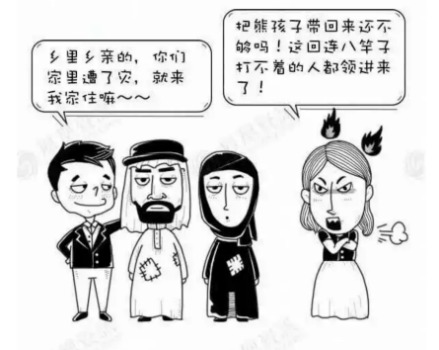


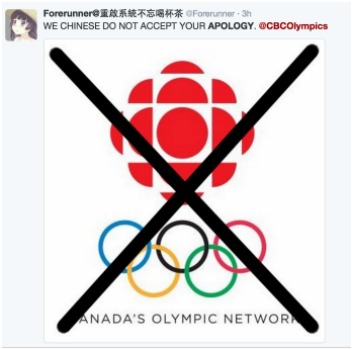


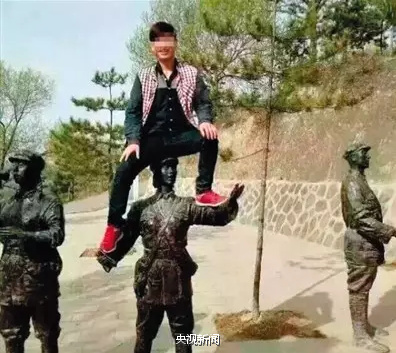








 A burkini sold on a
A burkini sold on a  China’s infamous ‘facekini’
China’s infamous ‘facekini’
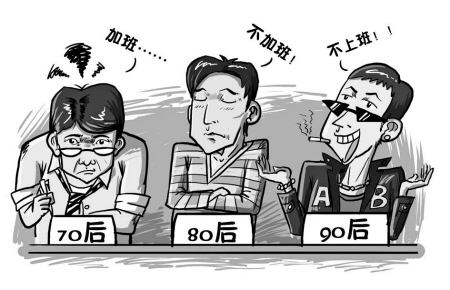 A Chinese
A Chinese 